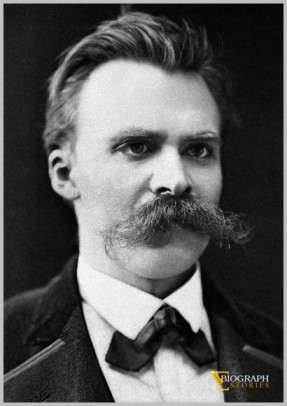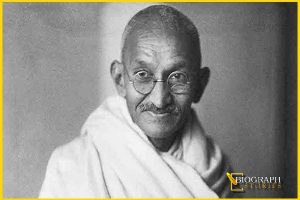
Friedrich Wilhelm Nietzsche Quick Fact:
Born: 15 October 1844, Röcken, Province of Saxony, Kingdom of Prussia
Died: 25 August 1900 (aged 55) Weimar, Grand Duchy of Saxe-Weimar-Eisenach, German Empire
Nationality: German
Alma mater: University of Bonn, Leipzig University
Era: 19th-century philosophy
Region: Western philosophy
Institutions: University of Basel
Main interests: Aesthetics, Ethics, Metaphysics, Ontology, Philosophy of history, Poetry, Psychology, Tragedy, Value theory.
Biography of Friedrich Wilhelm Nietzsche:
19th century’s famous German philosopher and philologist Friedrich Nietzsche was known for his critical texts on religion, morality, contemporary culture, philosophy and science. He was famous for his ideas like death of God, perspectivism, the Übermensch, the eternal recurrence, and the will to power. At the age of 24, he started his career as a classical philologist. He was the youngest individual to hold the Chair of Classical Philology at the University of Basel. His works were often criticized for remained controversial and anti-Christian faith. During World War I, it was said that German soldiers used to get a copy of Thus Spoke Zarathustra for inspiring themselves. Later, his work was recognized and considered as great personality development elements.
Childhood & Early Years of Friedrich Wilhelm Nietzsche:
On 15 October 1844, Friedrich Nietzsche was born in a small town called Röcken, located near Leipzig, in the Prussian Province of Saxony. He was born to Carl Ludwig Nietzsche, a Lutheran pastor in Röcken and Franziska nee Oehler. The couple had three children and Friedrich was the eldest. Due to some kind of brain disorder Friedrich’s father, Carl Ludwig died in 1849. In 1851, Ludwig Joseph, Friedrich’s younger brother also passed away. Friedrich and his sister left Röcken with their mother Franziska, to live with Franziska’s mother in Naumburg. Franziska’s two unmarried sisters-in-law also lived in the same house. From 1854 to 1858, Friedrich studied at Domgymnasium in Naumburg. After that, he entered on scholarship to Schulpforta’, an internationally famous boarding school. There along with studying classical languages like Greek, Latin, Hebrew, French and German, he also studied religion, history, natural sciences and mathematics. Friedrich have suffered from certain confusion during this period. He wrote an essay in 1862 entitled, “Fate and History”, arguing that historical research did not corroborate with the central teachings of Christianity. Receiving A1 in Religion and German, Friedrich Nietzsche graduated from school in September 1864. After graduation, he went to University of Bonn with theology and classical philology as his subjects. Friedrich’s aim was to become a minister like his father. After one semester in the university, he gave up theology because he lost faith in God. Friedrich began to study philology with Friedrich Wilhelm Ritschl in 1865. However, Ritschi was forced to resign from his post at the end of Friedrich’s his second semester, and move to Leipzig. Friedrich also moved with him. Soon, he began to publish number of papers under Ritschl’s tutelage. He began to study the works of Arthur Schopenhauer around this time that awakened an interest in him about philosophy. Friedrich signed up for one-year voluntary military service in October 1867. He hurt himself badly In March 1868 that required several months of rest to recover. In October 1868, while on an extended leave, he once again concentrated on his studies.
Professor at Basil of Friedrich Wilhelm Nietzsche:
A professorship in classical philology fell vacant in 1869 at the University of Basel in Switzerland and Ritschi strongly recommended Friedrich Nietzsche’s name. However, Friedrich Nietzsche was yet to complete his doctoral work. In addition, the University of Leipzig conferred the doctoral degree on Friedrich at Ritschi’s insistence based on his published papers. Friedrich Nietzsche gave up his Prussian citizenship before moving to Basel in 1869 and remained stateless for the rest of his life. He was appointed as an extraordinary professor of classical philology and in the following year promoted to the post of full professor. He developed closed friendship with Richard Wagner and his wife Cosima during this period and in 1870, may be under their influence, he published his first major work, “Greek Music Drama”. Nietzsche decided to work for his second doctoral degree also in 1870, writing “Beiträge zur Quellenkunde und Kritik des Laertius Diogenes” but he never submitted it. In August 1870, he took leave to serve in Franco-Prussian War as a medical orderly in the Prussian Army. However, he became ill and was discharged within one month of his joining. He was back at Basel by October 1870 and resumed his heavy teaching schedule. He became sick by early 1871 because of this heavy schedule and seeked transfer to philosophical department; but he was refused. He submitted the manuscript of his first major work, “Die Geburt der Tragödie aus dem Geiste der Musik” (The Birth of Tragedy from the Spirit of Music) in April 1871.
The first publisher refused “The Birth of Tragedy”, and ultimately released on 2 January 1872. He next wrote German “Über Wahrheit und Lüge im außermoralischen Sinn” (On Truth and Lie in an Extra-Moral Sense). He wrote “On Truth and Lie” in 1873 and it was published in 1896. He started working on “Philosophie im tragischen Zeitalter der Griechen” (Philosophy in the Tragic Age of the Greeks) also in 1873 but he did not finished it. “We Philologists” his 1874 book, was also unpublished. In 1877, Friedrich became seriously ill. He was suffering from unrelenting pain and being virtually blind. His first aphoristic style work “Menschliches, Allzumenschliches: Ein Buch für freie Geister” (Human, All Too Human: A Book for Free Spirits) published in 1878. Unfortunately, his continuous sickness forcing him to take longer and longer leaves. On June 14, 1879, he resigned from his job at Basel. He was granted a yearly pension of 3000 Swiss franc for a period of six years.
Working Independently of Friedrich Wilhelm Nietzsche:
Friedrich lived in near isolation after resigning from his job. His first important work of this period “Morgenröte – Gedanken über die moralischen Vorurteile” (The Dawn), published in 1881. He published his “Die fröhliche Wissenschaft” (The Gay Science) in the following year and his famous quote, “Gott ist tot” (God is Dead), first appeared in this work. He started taking huge quantity of opium from 1882, as his health worsened, but it did not help. He tried to obtain professorship at the University of Leipzig in 1883. However, he was rejected because of his views on Christianity. He wrote a philosophical novel “Also sprach Zarathustra: Ein Buch für Alle und Keinen” (Thus Spoke Zarathustra: A Book for All and None) when going into seclusion. It was composed in four parts between 1883 and 1885. He wrote “Jenseits von Gut und Böse: Vorspiel einer Philosophie der Zukun” (Beyond Good and Evil: Prelude to a Philosophy of the Future) in 1886. However, because of an argument with his publisher, he printed it at his own expense, also acquiring publication rights for his earlier works. Friedrich published “Zur Genealogie der Moral: Eine Streitschrift” (On the Genealogy of Morality: A Polemic) in 1887. In 1888, he wrote five books but out of them only “Der Fall Wagner” (The Case of Wagner) was published in that year. “Götzen-Dämmerung, oder, Wie man mit dem Hammer philosophirt” (Twilight of the Idols, or, How to Philosophize with a Hammer), was published in 1889 and two other works, “Der Antichrist” and “Nietzsche contra Wagner” were published in 1895. Friedrich’s last original work before he had his mental breakdown, a semi-autobiographical book, entitled “Ecce homo: Wie man wird, was man ist” (Ecce Homo: How One Becomes What One Is). It was written in 1888 and published in 1908.
Personal Life & Legacy of Friedrich Wilhelm Nietzsche:
Friedrich Wilhelm Nietzsche did not marry in his life. He proposed to a Russian student Lou Salomé three times in around 1892-1893 but he was rejected each time by her. It was also believe by some modern scholars that he was homosexual but others dismiss this view. Friedrich had a mental breakdown On 3 January 1889, originally diagnosed as tertiary syphilis. It is said that he saw a horse being flogged in Turin and running to save it, he threw himself around its neck. What happened thereafter is not known; but he was found loitering on the road. That time his sister had left for South America so his friends arranged to bring him back to Basel. His mother transferred him to a clinic in Jena in March 1890. In May 1890, bring him back to Naumburg and take care of him at home. In 1893, Friedrich’s sister returned and took control of his unpublished works, rewriting them to suit her anti-Semitic ideology. In 1894, she creates ‘Nietzsche Achieve’. Their mother died in 1897 and she transferred him to Weimer, there she allowed visitors to meet uncommunicative Friedrich. He had at least two strokes in 1898 and 1899 that left him unable to walk or speak. He contracted pneumonia in the middle of August. Suffering from another stroke sometime in the night of 24-25 August and he did not survive it. He passed away on 25 August 1900. He was buried beside his father at the church in Röcken bei Lützen.
Notable Works of Friedrich Wilhelm Nietzsche:
- Thus Spake Zarathustra
- The Birth of Tragedy
- Untimely Meditations
- The Gay Science
- Beyond Good and Evil
- The Will to Power
- Ecce Homo
- On the Genealogy of Morals
- Human, All-Too-Human








